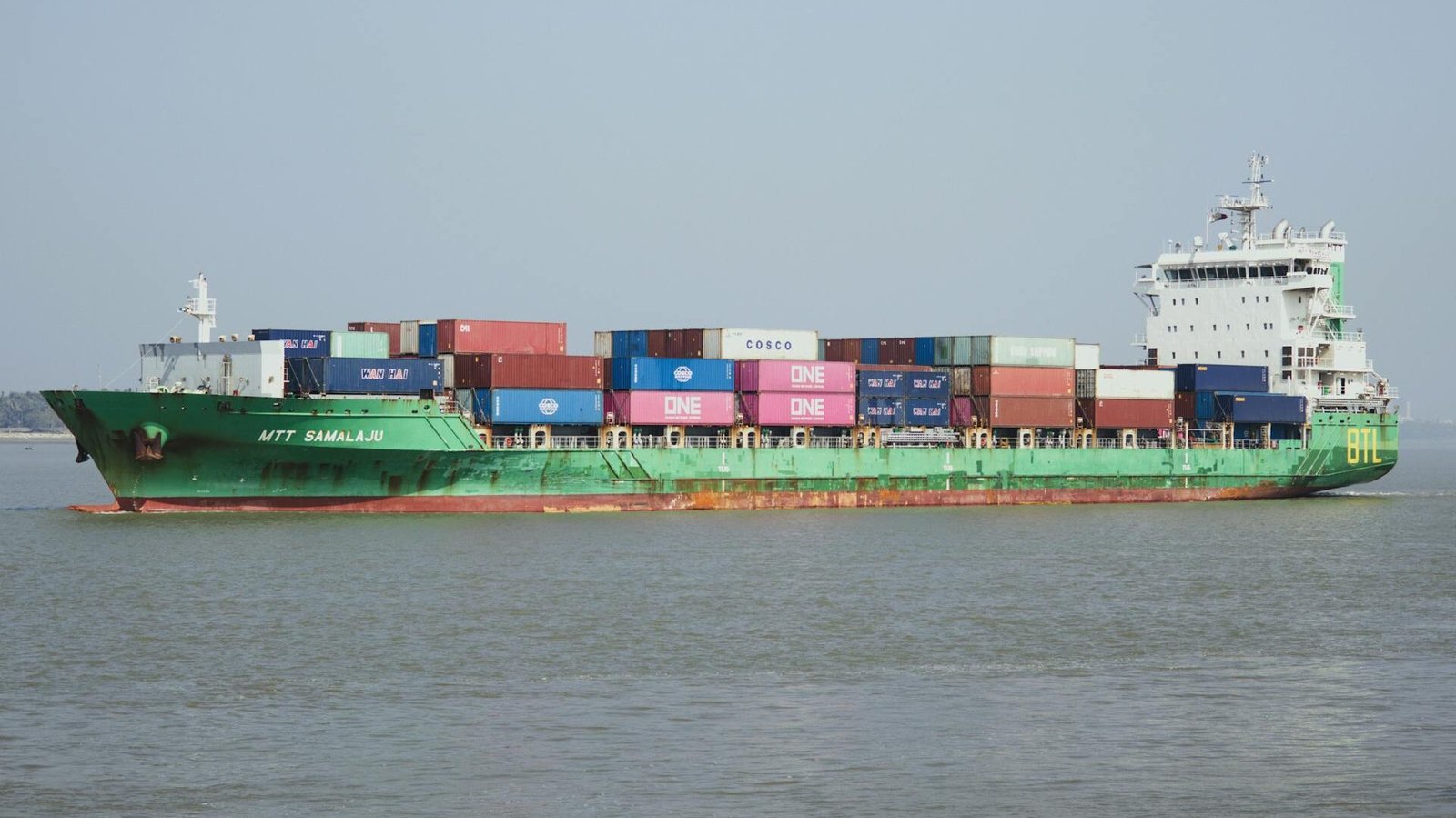
In the arena of international trade, when it comes to shipping batteries by sea to Pakistan, many merchants and industry practitioners have noticed the unique complexity in its customs clearance and delivery processes, and the timeliness is often difficult to control. Behind this lies a series of closely related and crucial factors that profoundly influence whether each batch of battery goods can reach the destination smoothly and efficiently.
I. Stringent Maritime Shipping Standards Triggered by the Characteristics of Battery Goods
Batteries, especially those intended to be shipped by sea to Pakistan, are indisputably classified as hazardous and sensitive goods due to the properties of their internal chemical substances. From the very beginning of the shipping process, that is, the cargo packing stage, they embark on a journey of adhering to strict standards. In terms of packaging, specially designed materials that are suitable for the characteristics of batteries must be used, which possess excellent fireproof and leak-proof functions. Only in this way can the safety of the goods be maximally ensured during the possible extreme situations such as high temperatures and collisions during the sea voyage of shipping batteries to Pakistan.
Take common lithium batteries as an example. The design of the buffer layer inside their packaging is of vital importance. It can effectively prevent short circuits and fires caused by the mutual extrusion and friction of the batteries. The outer packaging should also clearly mark key information such as “lithium battery” words, accurate capacity specifications, and the corresponding United Nations Dangerous Goods Number (UN number) in a prominent way. These pieces of information are like the “identity passwords” of the batteries, and the absence of any one of them may cause obstacles during maritime shipping and subsequent customs clearance.
The preparation of shipping documents is also of utmost importance for shipping batteries by sea to Pakistan. A complete and compliant set of battery shipping documents comprehensively covers detailed battery composition descriptions, legally valid qualification certifications of the manufacturers, and cargo transportation appraisal reports issued by professional and authoritative institutions. These documents are not only the “passes” for the goods to legally go overseas and embark on the journey to Pakistan but also the core basis for the customs clearance review by the Pakistani customs.
Once there are minor defects in the packaging or any inaccuracies or omissions in the documents, the Pakistani customs, out of strict control over transportation safety and compliance, will definitely intercept the goods and require the repackaging to be rectified and the documents to be supplemented or verified. This process involves the close coordination and repeated communication among the consignor, the freight forwarder, the professional appraisal institution, and the customs.
From the freight forwarder urgently contacting the consignor thousands of miles away to carefully prepare the materials again, to the professional institution using professional equipment and technical strength for re-appraisal, and then to the customs officers conducting a second rigorous review, each link takes valuable time, and the pre-transportation process of shipping batteries by sea to Pakistan is thus elongated invisibly.
II. Analysis of the Dilemma of Pakistani Customs Inspection
When the containers loaded with battery goods, carrying the hopes of numerous merchants, finally arrive at the Pakistani port after a long sea voyage, the customs inspection link is like a “checkpoint” that becomes a key and thorny issue affecting the timeliness. The inspection mode of the local customs in Pakistan is still relatively traditional, relying heavily on manual operation. In those bustling ports that receive and send a huge number of containers from all over the world every day, the large-scale inspection task is like an insurmountable “mountain”.
The staff members need to painstakingly open each container one by one and carefully check the battery goods inside against the accompanying complex documents with their eyes and experience to ensure that the actual situation of the goods is consistent with the declared information and to prevent any illegal acts such as smuggling, false declaration, or underreporting. A common cargo ship usually carries thousands of containers at a time.
Considering such a large quantity and comparing it with the limited efficiency of manual inspection, even if the customs prioritize the inspection of high-risk and sensitive goods like batteries shipped by sea to Pakistan, according to the rough estimate that each person can only inspect dozens of containers per day, the waiting time for the goods to be inspected may be as long as several weeks.
Moreover, the inherent disadvantages of manual operation are inevitable, and carelessness occurs from time to time. Sometimes, due to an incomplete and meticulous initial inspection, repeated verification is necessary, which further significantly reduces the overall inspection efficiency and makes the detention time of the goods shipped by sea to Pakistan in the port extend dramatically like a runaway kite.
III. Complex Variables in the Taxation Determination Link
When shipping batteries by sea to Pakistan, the taxation link is fraught with many uncertainties and challenges. From the elaborate framework of the Pakistani customs tariff, the classification of batteries is extremely detailed. Batteries with different chemical compositions, such as lead-acid batteries and lithium batteries, and those classified according to different uses, such as industrial batteries and civil consumer batteries, have vastly different corresponding tax rates. The original intention behind this detailed classification is to closely match the industrial characteristics and market supply and demand orientation of various battery products in Pakistan and to achieve scientific and reasonable import regulation.
However, the ideal is plump while the reality is skinny. In the actual operation process, this detailed classification brings about numerous problems. On the one hand, accurately determining which specific category the batteries shipped by sea to Pakistan belong to is no easy task. In today’s era, battery products are like the “leaders” in the technological wave, constantly being updated and innovated. New models and hybrid technology batteries emerge in an endless stream. There are often slight differences in the understanding of the cutting-edge technical details and diverse application scenarios of batteries among the customs, tax departments, and freight forwarders, resulting in irreconcilable deviations in classification.
On the other hand, even if all parties have made great efforts and initially reached a consensus on the classification of the batteries, there are still “hidden reefs” of human interference in the actual taxation process. The established tax rate is difficult to be implemented accurately as planned, and sudden situations such as the temporary requirement to supplement additional supporting materials and re-evaluate the value of the goods often occur. All parties have to be trapped in the “quagmire” of repeated communication and frequent data supplementation.
During this period, the poor battery goods can only be detained at the wharf, and the customs clearance process is like being pressed the pause button and comes to a standstill. Only when the tax amount is clearly determined and the tax payment formalities are handled perfectly can the goods be released and move on to the next step. This undoubtedly greatly increases the time cost of customs clearance for shipping batteries by sea to Pakistan.
IV. Exploration of the Efficiency Shortcomings in Local Land Transportation and Delivery
After going through the arduous customs inspection and taxation determination processes and successfully “passing the barriers”, the goods shipped by sea to Pakistan finally welcome the land transportation and delivery link with great anticipation. However, it turns out that this is also a road full of thorns. In Pakistan, the construction of logistics infrastructure is like a child that has not yet fully grown up, relatively lagging behind. Most of the basic operations such as container unloading, cargo registration, and loading and unloading can only rely on manual labor, and automated equipment is as rare as a precious treasure.
Most of the dock workers have not received systematic, professional, and in-depth logistics training, and their low operation proficiency is worrying. During the container unloading process, it is very easy to cause damage to the battery goods due to improper operation. When loading and unloading, the goods are placed in a disorderly manner, which not only greatly increases the risk of goods damage but also requires a lot of extra time for subsequent inventory and search for goods, and rework occurs frequently like a common occurrence.
In addition, the local traffic situation is simply a “nightmare”. Road congestion is the daily “background color” of the city, and most of the transportation vehicles are old models with a high failure rate. From the port of Pakistan to various inland destinations, the transportation vehicles often have to move forward laboriously like snails on the congested roads, and the driving speed is so slow that it is despairing. They often break down on the way due to vehicle failures, making the delivery time far exceed the expected time. The “last mile” delivery is like an endless “protracted war”, seriously affecting the overall transportation timeliness of shipping batteries by sea to Pakistan.
In conclusion, the long time-consuming process of shipping batteries by sea to Pakistan is a “predicament” formed by the interweaving of various objective factors, and it is by no means due to the inadequate operation of the freight forwarding company. Despite facing numerous challenges, the freight forwarding industry is also taking active actions and rising to the occasion.
Relying on the long-term accumulated local human resources, freight forwarding companies maintain extremely close communication with the Pakistani customs, gain insight into the key points of inspection in advance and accurately grasp the policy dynamics, provide customers with customized packaging specification guidance, and pre-examine the documents to ensure accurate declaration.
At the same time, they conduct in-depth research on the local traffic conditions, optimize the delivery route planning by using big data and intelligent algorithms, select relatively smooth and stable transportation routes, and work in synergy with land transportation partners to improve the training level of workers. By taking multiple measures simultaneously, they strive to compress the overall transportation timeliness of battery goods from the Chinese port’s departure, through sea transportation, to the final delivery to customers in Pakistan, and help enterprises successfully explore the Pakistani battery market.





